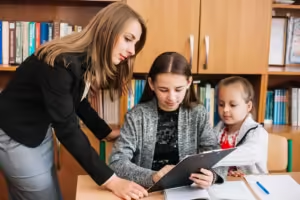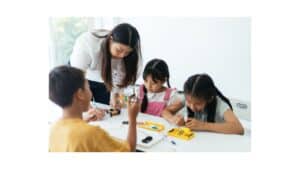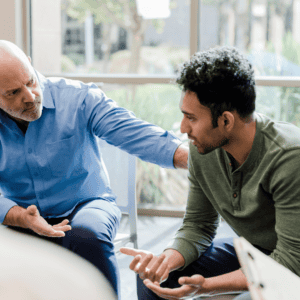In the dynamic landscape of education, collaboration and support are paramount to ensure the success of both students and educators. Enter school consultation – a vital yet often misunderstood aspect of the educational framework. This blog aims to dissect the multifaceted role of school consultation, shedding light on its significance in fostering inclusive learning environments, addressing academic and behavioral challenges, and enhancing overall educational outcomes school consultation goes beyond traditional teaching methods, encompassing a collaborative approach that involves educators, administrators, parents, and external specialists. By leveraging diverse perspectives and expertise, school consultation endeavors to tailor interventions and strategies to meet the unique needs of every student. From providing guidance on individualized education plans to facilitating professional development for teachers, its impact permeates every facet of the educational ecosystem. Join us as we delve deeper into the intricacies of school consultation, unraveling its complexities and exploring its transformative potential in shaping the future of education.
Navigating Challenges: Overcoming Barriers to Effective School Consultation

Navigating the complex terrain of school consultation can be both rewarding and challenging for educators. While consultation offers invaluable opportunities for collaboration and professional growth, it also presents various obstacles that can hinder its effectiveness. In this blog post, we will explore common challenges encountered in the practice of school consultation and provide strategies for overcoming them. By addressing these barriers head-on, educators can maximize the impact of consultation and foster positive outcomes for students, teachers, and school communities.
Resistance to Change
One of the primary challenges in school consultation is resistance to change. Whether it stems from entrenched practices, fear of the unknown, or skepticism about the benefits of consultation, overcoming resistance is essential for progress. Educators can address this barrier by fostering a culture of openness and transparency, emphasizing the potential benefits of consultation, and involving stakeholders in decision-making processes. By actively engaging resistance and addressing concerns, educators can pave the way for meaningful collaboration and positive change.
Limited Resources
Another common challenge in school consultation is limited resources, including time, funding, and personnel. With competing demands and finite resources, educators may struggle to prioritize consultation efforts effectively. To overcome this barrier, educators can leverage existing resources creatively, seek external funding opportunities, and establish partnerships with community organizations and stakeholders. By maximizing the use of available resources and advocating for additional support, educators can enhance the sustainability and impact of consultation initiatives.
Communication Breakdowns
Effective communication is essential for successful consultation, yet communication breakdowns often pose significant challenges. Misunderstandings, conflicts, and lack of clarity can impede collaboration and hinder progress. To address this barrier, educators can prioritize clear and consistent communication, establish protocols for sharing information, and actively listen to the perspectives of all stakeholders. By fostering open and respectful communication channels, educators can build trust, strengthen relationships, and enhance the effectiveness of consultation efforts.
Resistance from Stakeholders
In addition to resistance from within the school community, educators may also encounter resistance from external stakeholders, such as parents, community members, or policymakers. Differing priorities, perspectives, and agendas can create tensions and obstacles to collaboration. To overcome this barrier, educators can engage stakeholders proactively, involve them in the consultation process, and address concerns and misconceptions directly. By building partnerships based on trust, mutual respect, and shared goals, educators can navigate resistance from stakeholders and promote meaningful collaboration.
Lack of Training and Support
School consultation requires specialized knowledge, skills, and competencies, yet many educators may lack adequate training and support in this area. Without proper preparation, educators may feel ill-equipped to engage in consultation effectively. To address this barrier, schools and districts can invest in professional development opportunities, provide ongoing training and coaching, and establish mentorship programs for educators involved in consultation. By equipping educators with the necessary knowledge and skills, schools can enhance the quality and impact of consultation initiatives.
Building Bridges: Enhancing Family-School Partnerships Through Consultation

Effective family-school partnerships are essential for student success, and consultation serves as a powerful tool for strengthening these collaborations. In this blog post, we’ll explore how consultation can be used to enhance family-school partnerships, fostering communication, trust, and collaboration between home and school.
- Communication and Engagement: Consultation facilitates ongoing communication and engagement between families and educators, creating opportunities for sharing information, exchanging perspectives, and building relationships based on trust and mutual respect.
- Involving Families in Decision-Making: By involving families in consultation processes, educators can empower them to play an active role in decision-making related to their child’s education, fostering a sense of ownership and investment in their child’s learning journey.
- Tailoring Support to Family Needs: Consultation allows educators to tailor support and resources to meet the diverse needs and preferences of families, whether it’s providing information in multiple languages, offering flexible meeting times, or addressing cultural considerations.
- Promoting Family Advocacy: Through consultation, educators can support families in advocating for their child’s needs within the school system, providing guidance, resources, and assistance in navigating educational processes and accessing services.
Data-Driven Decision Making: Leveraging Assessment in School Consultation
In the dynamic landscape of education, data-driven decision-making has emerged as a powerful tool for driving positive outcomes. In the realm of school consultation, leveraging assessment data can provide valuable insights and inform effective strategies for supporting student success. In this blog post, we will explore the pivotal role of assessment in school consultation and discuss how educators can harness data to guide their consultation efforts.
Types of Assessment Data
Assessment data come in various forms, including standardized tests, curriculum-based assessments, observations, and student work samples. Each type of data offers unique insights into student learning and development, allowing consultants to tailor interventions to meet individual needs effectively.
Identifying Student Needs
Assessment data enable consultants to identify student needs accurately and develop targeted interventions to address them. By analyzing assessment results, consultants can pinpoint areas of academic or behavioral difficulty and design interventions that are responsive to students’ unique strengths and challenges.
Monitoring Progress
Assessment data play a crucial role in monitoring student progress and evaluating the effectiveness of interventions. By tracking students’ performance over time, consultants can assess the impact of interventions, make data-informed adjustments as needed, and ensure that students are making meaningful gains.
Informing Decision-Making
Data-driven decision-making lies at the heart of effective consultation, guiding consultants in selecting appropriate interventions, allocating resources, and prioritizing support services. By basing decisions on empirical evidence rather than intuition or anecdotal observations, consultants can optimize outcomes for students and maximize the efficiency of consultation efforts.
Collaborative Data Analysis
Effective consultation requires collaboration among stakeholders, including educators, administrators, and parents. Collaborative data analysis allows stakeholders to share perspectives, identify patterns and trends, and develop shared goals and action plans for supporting student success.
Conclusion
Understanding the intricate dynamics of school consultation unveils its pivotal role in fostering a supportive educational environment. From enhancing student learning outcomes to empowering educators with effective strategies, the impact of consultation services is profound. By bridging the gap between theory and practice, consultants facilitate collaboration among stakeholders, ultimately enriching the educational experience for all involved. As we navigate the complexities of modern education, embracing the multifaceted approach of school consultation emerges as a cornerstone for driving positive change.
For further inquiries or to explore how our consultation services can benefit your school community, please don’t hesitate to contact Positive Solutions Behavior Group LLC in Florence, Kentucky at 859-282-0400. We’re here to support your journey towards educational excellence.






